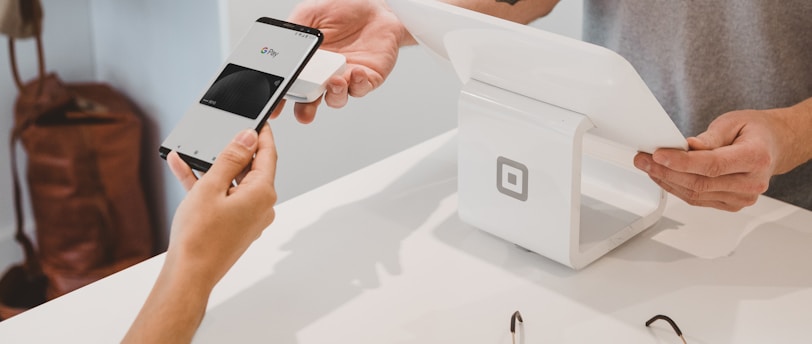Customer Loyalty
Myth or Reality
ilker Bayar
10/14/20236 min read


Whether you are a business owner or a marketing professional, ask yourself these questions about loyalty for a change: Are there any brands that I am really loyal to? How many times do I buy the same product from the same brand? How many times do I get the same services from the same supplier? You will realise that there are actually fewer times that we choose the same company when we shop. You may prefer your local grocer for proximity but even in that shop you may choose different brands every time you visit. So maybe loyalty is overrated!?!
Why customer loyalty matters
First of all, when you have loyal customers, you can secure some fixed income as they might repeatedly buy your products. Needless to say, the frequency and the volumes of purchases are key here. If your products are bought on a daily, monthly, weekly basis even in small quantities (or once a year but in huge volumes), in any way it's good to have returning customers who will bring in the cash. Also, loyal customers tend to spend more on your products and services than new ones.
Second, loyal customers -just like your employees- are brand ambassadors and no one can deny the power of word of mouth. When your customers talk about your products or services passionately, others around them will listen and hopefully will give you a try. That is why loyal customers are important in gaining new customers. But there is a catch; they can also become frustrated and turn against you. That's what you absolutely don't want. Nasty business. By all means, you treat the loyals as royals.
Are loyal customers worth it?
Every brand has loyal customers for sure. But expecting those customers to constantly shop from your business or prefer your products over hundreds or thousands of others is rather naïve. Right now, there are a bunch of companies offering unique services that might come as irreplaceable, though no company actually is.
Like Ricky Gervais had brilliantly put it in his gag as 2020 Golden Globes' host, Netflix dominated the entertainment industry. Hollywood is dead, long live the TV. Netflix is a globally popular entertainment provider and a giant, especially among youth. But it is an example from a relatively new industry. We will see how the likes of Amazon Prime or Hulu will change the scene. Who knows a new player might disrupt the whole market?
Now, think of other industries where there are thousands of players and the market is saturated. Fashion is one such industry. So, riddle me this; can there be a single company dominating fashion? Of course, there are giants in fashion but even they are struggling to find new customers as they are having a hard time retaining old customers. Because there are hundreds of players in each market, products are changing each season, everything seems so similar and other factors I don't even bother to list. So, what can fashion brands do? Of course, loyalty is important for fashion, especially when there is so much competition but maybe finding areas that haven't been tapped into is a better strategy.
Not just in fashion but in many industries, competition is the key. Honestly, when was the last time you chose one brand over the other just because you are loyal? If you have some examples, please share them below in the comments. But you will realise that your choices were probably random and based on aspects such as price, style, service, momentary or seasonal benefits, and on and on. But not necessarily because it is your go-to brand. My point is that there aren't so many brands that people are always 100% loyal to, to a point it will seriously affect their decision-making. Chances are that you are more loyal to your local butchers than you are to some renowned brands.
Of course, this doesn't mean that firms should not care about the quality of their products or services or retaining customers. In highly competitive industries, the ones that can make a difference can earn more. But only a thorough calculation of costs for keeping or losing customers can make it worth the effort. You can get help to calculate the cost to gain new customers or the cost of losing old ones.
Yet, customer loyalty can be a dream that some seem to chase relentlessly because it has been passed around like a legend from marketer to marketer, from one company to another. Especially larger firms find themselves in tailbacks and keep spending money on rewards, campaigns and promotions. Whereas loyalty is quite relative to the context and cannot be valid for all situations and every industry.
Personally, I am not a loyal customer but that doesn't mean that every single person is the same as me. If I assume that people shop the way I do, I will fail as a marketing consultant. But through thinking about ourselves and observing our purchasing behaviour and habits, we can make some fair judgments which can be useful in business decisions.
For instance, when I am shopping for groceries, I am fairly loyal because there are certain factors at play. The proximity of the shop, quality of the products, good service, and return policy are key for me to choose where I shop for produce. A friendly neighbourhood store is ideal for me. My choice of convenience has become a habit. I don't want to shop from others when my guys are closed or out of produce. Now, that's not real loyalty. However, when I am shopping for packaged / fast-moving consumer goods, I choose a different supplier; supermarket chains that offer a good variety in selection, discounts on products, different payment methods, and home delivery, etc. But there is no guarantee that I will not switch when I find a better service. I tend to move between M&S and Lidl within the same week. Naturally, I will think of my self-interest over the shop owners.
Branding came out of the need to differentiate one company from the other and to avoid commoditisation. A brand is quickly recognised and distinguished from others and so are its products and services. If we didn't have brands, we would have merchants selling commodities and it would make switching much easier for customers. Because in the end, a product is just a product. So, with branding came promises.
A brand might stand for good quality, exceptional customer care, amazing designs, cheaper products, innovative technologies, environmental solutions, social responsibility, cool image and therefore reputation for the user (luxury consumers buying products for conspicuous consumption to show off). But the problem is that all those promises are made by the competitors almost immediately. Do you think you are the best? Watch the next move in the industry and your customers are gone to cheaper prices or better deals. Very few things we do cannot be copied. Even Coca Cola was copied for branding's sake.
Very few companies, often first movers in an industry, are not replaced easily. Take Microsoft for example. Today, from homes to offices, the majority of the computers rely on MS software. Of course, there are alternatives but still, it's a pioneering company and therefore dominates the market. Facebook is another perfect example. There are thousands of other social media platforms but Facebook became so popular that it's almost impossible to make users switch to another. Tik Tok may be its biggest rival but still not the same kind of platform. What’s more, Facebook purchased other platforms like Instagram and WhatsApp and beheaded the possible competition before they were even a threat. You either use Facebook or get sick of it to leave it open but inactive like I do. If you are a company, one way or another you have to be on Facebook or Instagram to at least advertise your business. But there is no switching the whole world to another platform. It will take a long time and worthy opponents to do that. Until then we just have to embrace the monopolies.
There are few examples of brands out there that seem irreplaceable. Though, it doesn't necessarily mean customers are loyal. It's because people have no alternatives. For thousands of other brands, it's not that easy. So, customer loyalty is relative, very contextual, and quite momentary.
A new strategy to have loyal customers is to create communities around the brand and involve consumers in story-making rather than storytelling and traditional methods to retain loyal customers. Adidas has Creators Club and is offering some premium services. Prada's Private Club offers services to select customers. There are companies who are involved in this type of creating communities and being inclusive. Maybe it is time for you to try something new.
Consultancy
Expertise in fashion and luxury branding.
Training
Agency
hello@branda.website
+447861276382
© 2025. All rights reserved.
